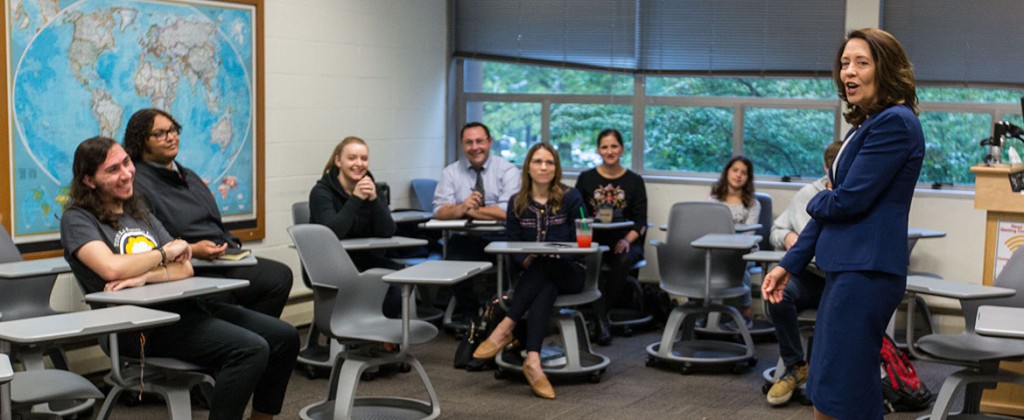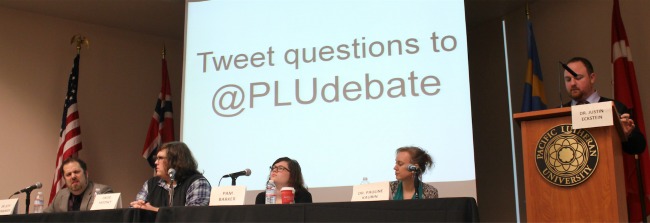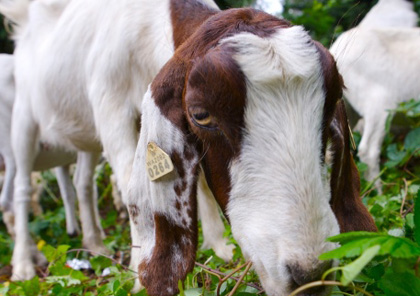Page 23 • (562 results in 0.021 seconds)
-

Clinical Assistant Professor of Nursing | School of Nursing | knowltrt@plu.edu | 253-535-7699 | Clinician, Administrator, Educator.
Pathophysiology, Clinical procedures for the Family Nurse Practitioner, Leadership and Organizational management, Policy and Politics in Healthcare, Clinical faculty for the FNP I FNP II and FNP III courses. Chair, Doctor of Nursing Practice projects. Scholarly interest Wilderness and austere healthcare. Alternative and complementary healthcare practices. Traditional Chinese Medicine practices, specifically Acupuncture. Correctional Health Care. Trauma Certified Registered Nurse (TCRN). Wilderness
-

Program Director, Peace Corps Prep | Peace Corps Prep | knowltrt@plu.edu | 253-535-7699 | Clinician, Administrator, Educator.
Advanced Nurse) Doctoral program (Advanced Health Assessment, Advance Pathophysiology, Clinical procedures for the Family Nurse Practitioner, Leadership and Organizational management, Policy and Politics in Healthcare, Clinical faculty for the FNP I FNP II and FNP III courses. Chair, Doctor of Nursing Practice projects. Scholarly interest Wilderness and austere healthcare. Alternative and complementary healthcare practices. Traditional Chinese Medicine practices, specifically Acupuncture
-
Original New York Times article here . My Response to Bryan College Is Torn: Can Darwin and Eden Coexist? by Alan Binder At Pacific Lutheran University, we think of “Lutheran” as an ethic that informs how we think, how we teach and how we help students…
religious dimension, ignorance is not bliss. Think about it: all these issues are charged with religious language – abortion, creationism vs. evolution, fundamentalism, LGBTQ rights, environmental defense and degradation, health care, Holocaust studies, human rights, international terrorism, the Iraq conflict, land use in the Northwest, presidential politics, the quest for peace, poverty, and stem-cell research. The value of your college education actually increases when you have a better understanding
-

TACOMA, Wash. (March 5, 2015)— On Saturday, March 21, a diverse and distinguished group of speakers will present “ideas worth spreading” at the fourth annual installation of TEDx Tacoma. Among that group will be three Pacific Lutheran University faculty members representing a variety of PLU’s…
claim or reclaim their roles as public agents and citizens. She is the author of the book Profits, Pundits and Gurus: Rhetorical Styles and Public Engagement and recently has submitted the manuscript of her second book, Teacher, School, Mother: Re-envisioning Motherhood in the Academy.Maria ChavezAssociate Professor of Political ScienceChavez’s areas of teaching and research interest include public policy, American government, Latino politics and race/ethnic politics. She is the co-author of the
-
The mission of the Master’s in Social Work Program at Pacific Lutheran University is to prepare skilled, ethical, professional service-oriented leaders and change agents who work toward just,
graduated from a CSWE-accredited program once the program attains Initial Accreditation. Program Curriculum & ScheduleDegree RequirementsAdvanced Standing 1-year program (14 months), 36 creditsYear One Fall 2024 - Year 1 (12 credits)J-Term 2025 (4 credits)Spring 2025 - Year 1 (8 credits)Summer 2025 - Year 1 (12 credits)* SOCW 555: Social Work in Health Care (4)SOCW 570: Comparative Health Care (4)SOCW 560: Mental Health Assessment & Intervention (4)SOCW 573: Policy Practice & Advocacy in Health Care (4
-

Before debating challenger Susan Hutchison in the Karen Hille Phillips Center for Performing Arts on Oct. 8, Sen. Maria Cantwell took time to stop by a classroom and field questions from some inquisitive PLU students. My dream job is Sen. Cantwell’s job,” said Gracie Anderson…
project that aims to increase civic participation through voter registration and education. Lute Vote brought Washington Secretary of State Kim Wyman to campus as part of its PLU Rocks the Vote! registration drive on Sept. 25, held a Civic Discourse and Engagement workshop with the PLU Debate team, and is organizing several Elect! Workshop events this month to inform voters and stir up engagement in local politics. “Voting is something I’m so passionate about,” Anderson said. “And something that so
-

“Is U.S. drone program fatally flawed?” This was the question debaters from Pacific Lutheran University (PLU) and University of Puget Sound (UPS) focused on during the first annual Ruth Anderson public debate on Wednesday, December 4. More than 100 people attended the debate on the…
Kaurin, Associate Professor of Philosophy at PLU, and Pam Barker PLU senior communication studies and political science major speaking for the affirmative; and Seth Weinberger, Associate Professor of Politics and Government at the UPS and David Mooney, PLU senior and political science major, arguing for the negative. Much of the debate focused on the differing opinions regarding the human cost of drone attacks. The debate came down to the question of “What do you prefer fairness or efficiency?” The
-
Curriculum Effective 2023-2026 Total credit hours: 80 (actual coursework based on gap analysis) Program length: Depends on gap analysis for acceptable transfer-in credits (if any) Program start:
& Collaboration (1) Fall 2024 10 credits GNUR 703 Theoretical Foundations & Evidence-based Practice (3) GNUR 710 Advanced Patho (3) GNUR 711 Advanced Pharm (3) GNUR 712 Advanced Pharm Discussion (1) January 2025 2 credits GNUR 704 Pop Health, Policy, & Politics (2) Study Away option (Mexico/DC/Oly/Tacoma) Spring 2025 10 credits GNUR 705 Information Systems & Patient Care Technology (2) GNUR 713 Physical Assessment (3) GNUR 714 Advanced Practice Clinical Decision Making (2) GNUR 720 Primary Care Procedures (3
-
Since 2016, hate speech and crimes directed at members of the Jewish community in the U.S. have increased sharply.
Genocide Studies Program), Dr. Seth Dowland (Associate Professor of American Religious History), and Rabbi Bruce Kadden (Lecturer in Judaism and Holocaust Studies) will invite discussion of some of the toxic sources of antisemitism and the efforts to protect Jewish communities. 7:00pm – The Seventeenth David and Marilyn Knutson Lecture “From Religion to Politics: Antisemitism and Jew Hatred From Ancient Times Until Today” Dr. Marc Dollinger, the Richard and Rhoda Goldman Chair in Jewish Studies at San
-

Food Symposium addresses the many ways food impacts the world. The ethics of food By Katie Scaff ’13 The PLU Philosophy Department’s Food Symposium Feb. 21 will address the ethics revolving around food. Keynote speaker, Paul B. Thompson – the W.K. Kellogg Chair in Agricultural,…
a different take,” said Philosophy Professor Erin McKenna. “He complicates some of those solutions. He’ll take things that people do automatically and show that you actually have to think about what you’re doing.” Each year the Philosophy Department hosts an event, but this is the first year they have done an event of this magnitude. “We wanted to break out from just having a speaker,” said McKenna. Anyone with an interest in food, including food aesthetics, ethics, politics, or nutrition, is
Do you have any feedback for us? If so, feel free to use our Feedback Form.


